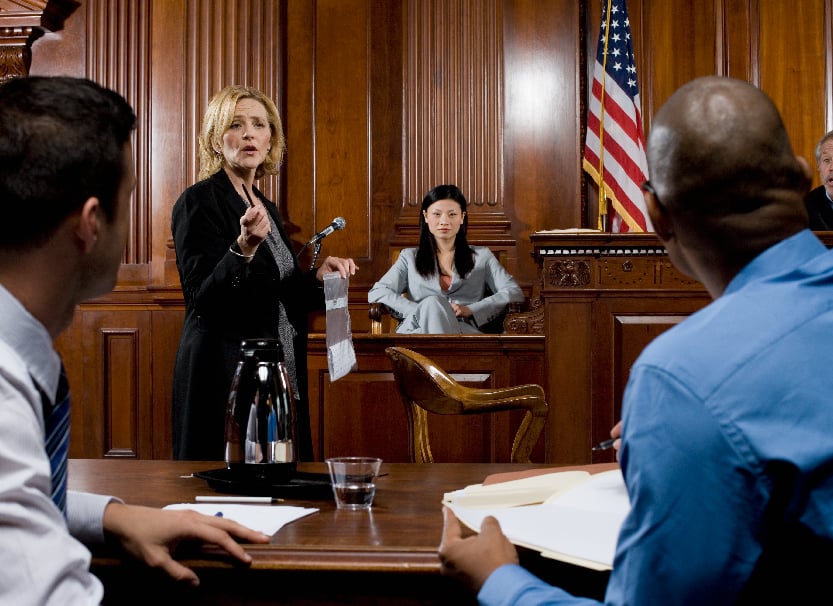Eleventh Circuit Loosens Loss Causation in High-Profile Election-Interference Securities Suit
On November 26, 2025, the Eleventh Circuit reversed Judge Aileen Cannon’s dismissal in Jastram v. NextEra Energy, Inc. in a decision that appears to significantly broaden the Circuit’s loss causation standard at the motion-to-dismiss stage.
Get Your Story Straight: Inconsistency in Plaintiff’s Allegations & Theories Dooms Complaint
This past summer, in a decision that attracted little attention, Vice Chancellor David in the Delaware Court of Chancery tossed Joel B. Ritchie v. G. Leonard Baker et al., a shareholder derivative suit filed on behalf of Corcept Therapeutics, Inc. against certain directors for alleged breaches of fiduciary duty related to off-label marketing practices. The Court dismissed the complaint under Court of Chancery Rule 23.1 because Plaintiff, who had not made a pre-litigation demand, failed to plead that the Board was unable to bring its business judgment to bear on assessing such a demand and, as such, the demand was not futile.
Gutterball Claims: Delaware Court Rejects Contract and Fraud Claims in the Face of Fair Disclosures
In a recent post-trial opinion in BBP Holdco, Inc. v. Brunswick Corporation, the Delaware Superior Court addressed an unusual M&A dispute. After a spin off of one of Brunswick’s bowling divisions, the buyers claimed that they had been defrauded not because Brunswick failed to disclose an ongoing regulatory issue, but because Brunswick allegedly failed to disclose enough about the issue, including how it might unfold in the future. The court soundly rejected this theory, holding that Brunswick fulfilled its obligation to fairly disclose the issue in sufficient detail for the buyers to perform their own independent investigation.

Winding Back the Clock: Delaware Supreme Court Clarifies When Fraudulent Concealment Resets a Contractual Limitations Period
The Delaware Supreme Court recently clarified the circumstances when a fraudulent concealment claim will toll a contractual limitations period. In LGM Holdings, LLC v. Gideon Schurder, et al., the sellers of a pharmaceutical business moved to dismiss the buyers’ claims for breaches of the representations and warranties in the parties’ purchase agreement, arguing they were time-barred by a five-year survival period in the agreement’s indemnification provision. The buyers argued that this five-year period should be tolled under the fraudulent concealment doctrine, but the trial court disagreed, dismissing the claim after finding that fraudulent concealment did not toll the survival period because the buyers had learned of the potential claim within that five-year period. The Delaware Supreme Court reversed the dismissal, and in doing so, offered useful guidance for the pleadings requirements for a fraudulent concealment claim and when fraudulent concealment will apply to a contractual limitations period.

Securities Litigation Against Life Sciences Companies: 2024
Securities class actions against life sciences companies are mostly second-order problems. The first-order problem is a business or regulatory setback that, when disclosed by the company or a third party, triggers a stock price decline. Following the decline, plaintiffs’ class-action attorneys search the company’s previous public statements and seek to identify inconsistencies between past positive comments and the current negative development. In most cases, plaintiffs’ attorneys then seek to show that any arguable inconsistency amounts to fraud—that is, they will claim that the earlier statement was knowingly or recklessly false or misleading. When the challenged statement appears in a public offering document (that is, a registration statement or prospectus), plaintiffs need only show that the statement was materially false or misleading, not that it was made with scienter or caused their losses.
Court of Chancery Opinion Highlights the Importance of Clear Integration and Non-Reliance Provisions in M&A Agreements
Judge Medinilla’s recent opinion in Cytotheryx, Inc. v. Castle Creek Biosciences, Inc. is a reminder for practitioners to carefully consider whether an integration clause in a purchase agreement will be sufficient to bar extra-contractual misrepresentation claims. And although fraud claims arising out of M&A transactions often are brought against sellers, the decision also offers an example of how those claims can be brought against purchasers, particularly in transactions using stock consideration.
“No Better than a Racket”: Seventh Circuit Cracks Down on Merger Objection Strike Suits
In a recent decision, the United States Court of Appeals for the Seventh Circuit outlined a mechanism by which shareholders can object to mootness fees paid to plaintiffs’ attorneys in merger objection suits. See Alcarez v. Akorn, Inc., 99 F.4th 368 (7th Cir. 2024). By allowing a shareholder to intervene and inviting the district court to scrutinize the propriety of the suit, the Seventh Circuit took a further step in its battle against the frivolous strike suits that have plagued M&A transactions for many years.

Securities Litigation Against Life Sciences Companies: 2023
Securities class actions against life sciences companies are mostly second-order problems. The first-order problem is a business or regulatory setback that, when disclosed by the company or a third party, triggers a stock price decline. Following the decline, plaintiffs’ class-action attorneys search the company’s previous public statements and seek to identify inconsistencies between past positive comments and the current negative development. In most cases, plaintiffs’ attorneys then seek to show that any arguable inconsistency amounts to fraud — that is, they will claim that the earlier statement was knowingly or recklessly false or misleading. When the challenged statement appears in a public offering document (that is, a registration statement or prospectus), plaintiffs need only show that the statement was materially false or misleading, not that it was made with scienter or caused their losses.

Petitioners Make Their Case That Pure Omissions Are Not Actionable Under Section 10(b) and Rule 10b-5.
In 2024, the Supreme Court will be looking once again at the federal securities laws in Macquarie Infrastructure Corp. v. Moab Partners, L.P., Dkt No. 22-1165. The question presented to the Court this time is: Whether the U.S. Court of Appeals for the Second Circuit erred in holding that a failure to make a disclosure required under Item 303 of SEC Regulation S-K can support a private claim under Section 10(b) of the Securities Exchange Act of 1934, even in the absence of an otherwise misleading statement. The Court thus is primed to resolve a split between the Second Circuit and three other courts—the Third, Ninth and Eleventh Circuits—and will contend with the reach of the court-created implied private right of action to enforce Section 10(b). (more…)
The Line Between Speculation and Expectation in Damages: Delaware Court of Chancery Weighs in on Damages for Fraud in M&A Transaction
In a recent decision, Vice Chancellor Will refused to award expectation damages based on a buyer’s “speculative” synergistic cash flow resulting from a merger. The opinion demonstrates the rigorous approach that the Delaware Court of Chancery takes to calculating damages related to M&A transactions even with strong evidence of fraud, and offers valuable insight to companies calculating damages from lost synergies in M&A transactions.

